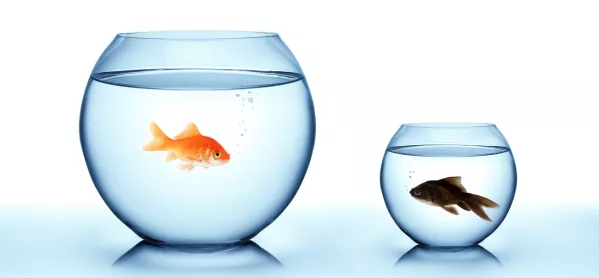- Home
- Is unconscious-bias training the new Brain Gym?
Is unconscious-bias training the new Brain Gym?

Racism is real. I have spent a large part of my life fighting it, and understand it is often deeply rooted in our social structures, and therefore hard to tackle.
So, when Labour leader Sir Keir Starmer announced that he is to have unconscious-bias training after criticism of his language around the Black Lives Matter protests, many welcomed it. Starmer’s endorsement of unconscious-bias training for himself, and for others in the Labour party, seems to demonstrate a new determination to root out racism, even from the darker recesses of our minds.
It follows on from the Channel 4 programme, The School That Tried To End Racism, in which a class of Year 7 pupils was filmed taking a scientific test to detect unconscious racial bias, and then given a three-week unconscious racial-bias training programme.
The narrator of the programme told viewers that the Implicit Association Test (IAT), “is now widely accepted as an accurate measurement of unconscious racial bias”.
Experimenting on children
I found the programme uncomfortable viewing. Not because I thought it revealed racist attitudes, but because of aspects of the experiment on these 11-year-olds.
In one scene, the children were physically separated into black and white groups, and the white children asked what they thought about black people. Most said the kinds of things you would hope to hear: that you should always see the person and not the colour of their skin.
The experts, watching from a private viewing room, pointed out that this was a luxury the black children could not enjoy.
In another scene, the white children looked utterly desolate as they heard their black friends laughing loudly, clearly having fun in their group. The experts looked almost gleeful as they pointed out that the white children were not used to being excluded, and clearly didn’t like it.
At this stage, my wife walked out of the room in protest, muttering about how these programme makers had got ethical committee approval for this televised experiment on children.
Highly controversial
After the tests were carried out, the children were told that 18 out of 24 had an unconscious bias towards white people. One pupil looks visibly upset at the news.
You could argue that making children feel a little sad is a price worth paying in order to better understand the roots of racist attitudes. However, there is a problem. There is as yet no strong evidence that unconscious bias tests or training actually work.
Far from being widely accepted within the scientific community, the evidence for IAT testing is highly controversial and disputed.
In a report in 2018, the British Psychological Society concluded that measuring implicit bias is mired in controversy. In the United States, a number of psychologists and writers who have reviewed the evidence reached a similar conclusion. These included psychology journalist Jesse Singal, who wrote: “The IAT falls far short of the quality control standards normally expected of psychological instruments.”
And respected science writer Tom Chivers reported that “companies spend a fortune on implicit bias tests - but they are next to useless.”
Even the creators of the IAT are at pains to stress the limitations, pointing out that a single IAT session, taken in isolation, can tell you little. Apparently, some people have taken the test one day and been given the good news that they are not racist, only to take it again and receive a less positive result.
Another glaring weakness is that whether you score highly or not does not appear to correlate with your real-life behaviour.
The new Brain Gym
It is well known in the field of psychology that it is near-impossible to do real-world tests in experimental psychology when what you are looking at is a highly complex belief or human behaviour. One scientist doing research in this area concluded that, in the end, the best indicator of whether someone is racist is whether they demonstrate racist views and behaviour.
There is also a risk that the tests could do harm, especially in a school setting. Judging by the Channel 4 programme, I think we should certainly discuss whether implying children are racists and making them unhappy is a productive way to unite children around the need to tackle racism.
Despite the tentative evidence, I am hearing more people suggesting we should introduce IAT into our schools for both students and teachers. Some schools have already written to parents informing them that the tests are coming.
This makes me nervous. It reminds me of how educators, desperate for the latest idea to improve learning, embraced programmes such as Brain Gym and learning-styles theory, without proper scrutiny or evidence. It took several years and the brilliant work of groups like ResearchEd to expose them for the snake oil that they were.
George Floyd’s death has prompted welcome soul-searching about how each one of us can contribute to ending racism. Schools can and should be part of that important debate.
But, as teachers, we have to make a stand against interventions that are promoted as “scientifically proven” when they are anything but.
Kevin Rooney is an author, writer and teacher of history, sociology and politics at Wren Academy, in North London
For more on unconscious bias and how it affects all of us, see this Friday’s Tes magazine cover feature
Keep reading for just £1 per month
You've reached your limit of free articles this month. Subscribe for £1 per month for three months and get:
- Unlimited access to all Tes magazine content
- Exclusive subscriber-only stories
- Award-winning email newsletters



